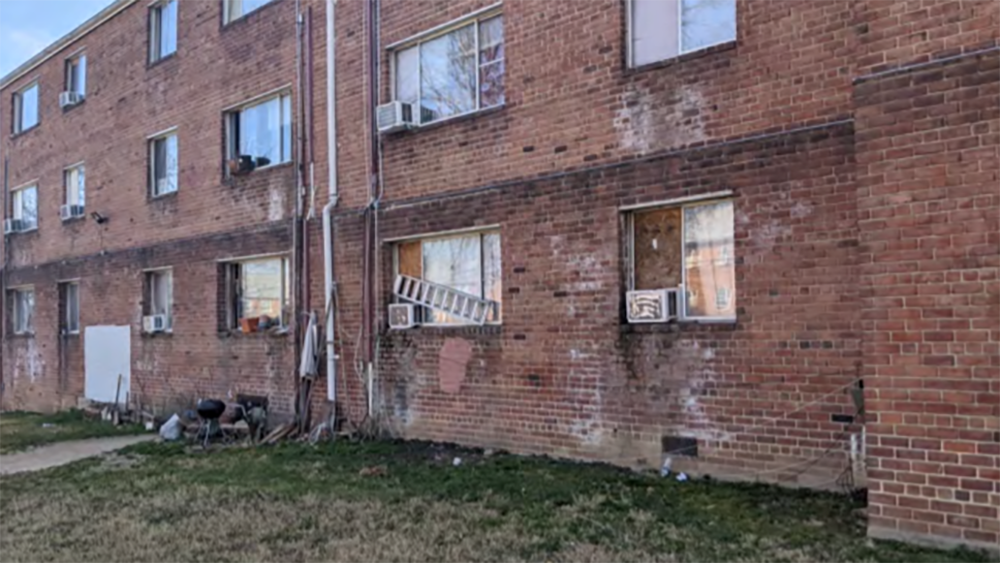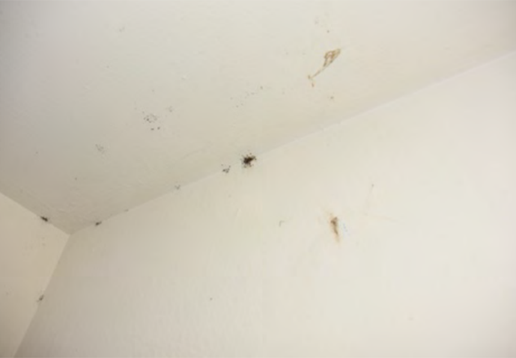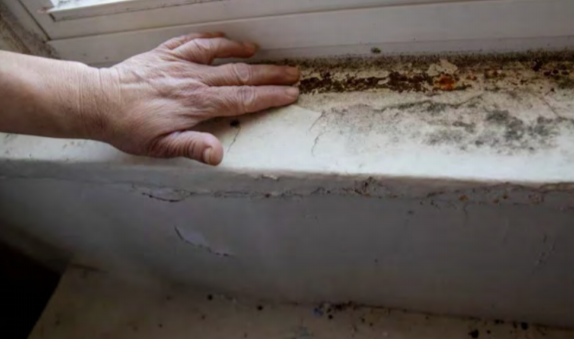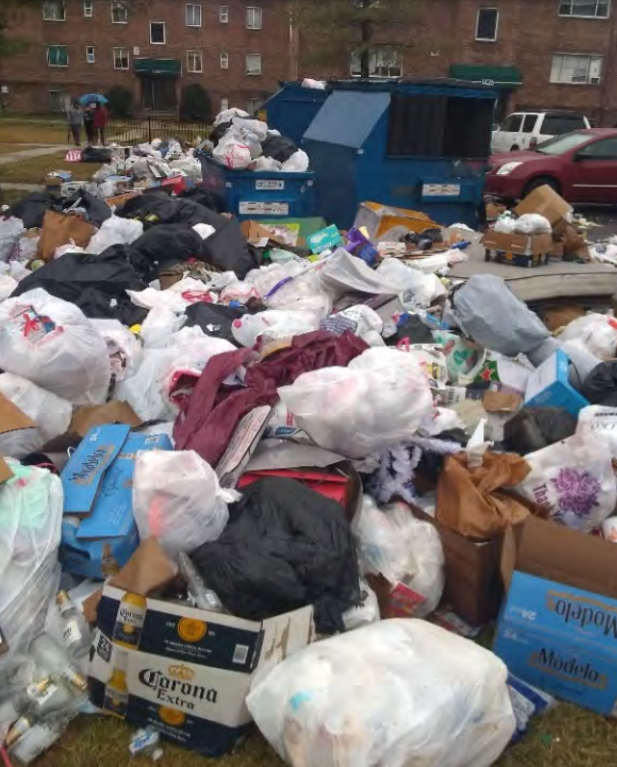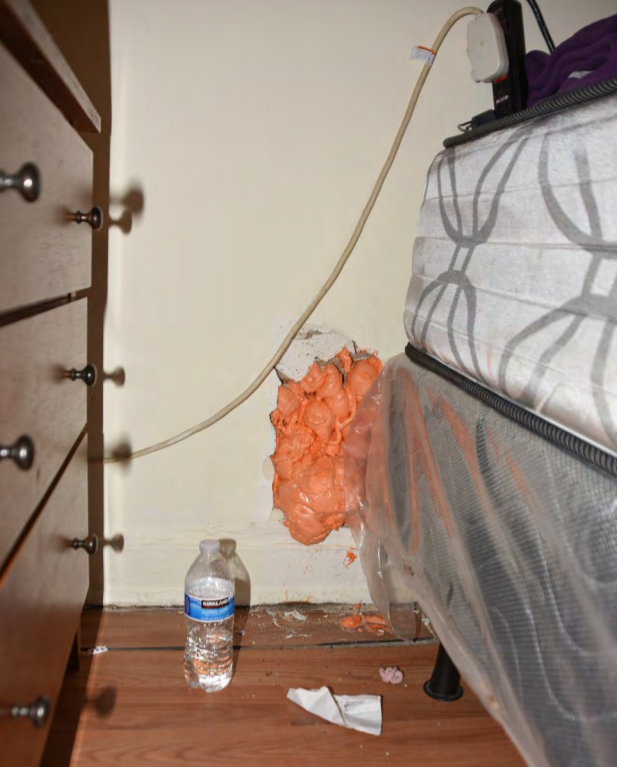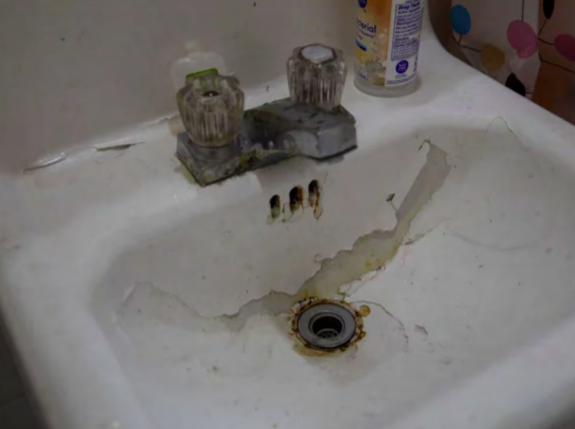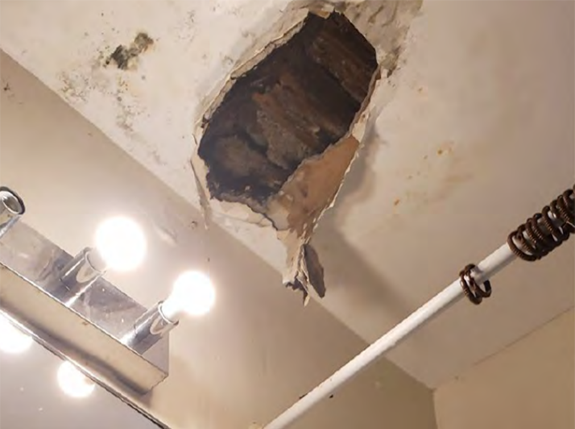Para leer este artículo en español, haga clic aquí.
CASA de Maryland, a Latino advocacy group, and tenants of two Langley Park apartment buildings filed a federal lawsuit early last week accusing the owners and managers of causing “significant damage to the Langley Park community,” alleging neglect resulting in hazardous and unsanitary conditions.
The tenants live in Bedford Station and Victoria Station, buildings in Prince George’s County managed by ROSS Companies. The plaintiffs claim the complex’s landlord has neglected to make repairs to units and put profits first.
“For more than a decade, we have been trying to speak to the owners and managers of this property to work together to improve the property conditions, and our pleas have continued to fall on deaf ears. We do not want slumlords in Langley Park,” Gustavo Torres, CASA’s executive director, said in a statement.
The lawsuit filed in the U.S. District Court for Maryland lists Arbor Realty Trust, Inc., a national real estate investment trust and lender based in New York, its subsidiaries and ROSS Companies as defendants. Neither Arbor Realty Trust nor ROSS Companies have responded to multiple requests for comment.
The complex’s infrastructure is failing, according to a statement from CASA, which has led to collapsed ceilings and infestations of cockroaches, bedbugs, rats and mice in the walls and units. The lawsuit also claims that refrigerators, stoves, heating and air conditioning units and lighting or electricity outlets also fail, with some stoves leaking gas.
In photographs included in the lawsuit, mold covers walls and ceilings. Other photos show the extent of pest infestations and how broken windows are boarded up with plywood, repurposed wooden doors or other construction material.
“Mold, broken appliances and mice are not acceptable living conditions for anyone and certainly not anyone living in Prince George’s County,” said County Council member Deni Taveras in a statement. “The residents of Bedford and Victoria Station Apartments are living under inhabitable conditions due to the degree of neglect and disinvestment.”
For years, tenants and local advocates in Langley Park have fought for equitable and safe housing through complaints, rent strikes and lawsuits, arguing that unsanitary and hazardous living conditions can be attributed to discriminatory practices stemming from race and immigration statuses.
Of Langley Park residents, 84 percent are of Latino or Hispanic origin and over 61 percent are foreign born, with almost 20 percent of the community living in poverty, according to the U.S. Census Bureau.
[Activists say developing Guilford Woods will displace wildlife, exacerbate flooding]
The plaintiffs also claim the landlord’s alleged refusal to address the issues raised by both tenants and local CASA advocates is racially motivated — about 85 percent of the complex’s tenants are Hispanic or Latino and roughly 15 percent are Black. None of the residents currently living in the complex are white, according to the lawsuit.
The suit highlights one of Arbor’s properties, The Quarry at Alamo Heights in San Antonio. This 306-unit multifamily complex is located in a majority white population area and has been renovated and maintained, according to the suit.
“The disparities in maintenance and capital investment between Arbor’s properties cannot be explained by non-racial factors,” the lawsuit reads.
The lawsuit alleges that Arbor Realty Trust purchases complexes in poorer areas, which usually have higher concentrations of members of underrepresented communities, and neglects maintenance while increasing rents annually.
“As a publicly traded company, Arbor needs to ensure profits for their shareholders. But above all, they need to provide safe homes for their tenants,” said Joseph Donahue, one of the lawyers representing the tenants, in a statement.
Since 2014, the complex has had more code violations than neighboring properties, the release noted.
A 2019 housing report conducted by several University of Maryland researchers and the Housing and Community Development Department at CASA found that between 2014 and 2017, there were a total of 3,023 code violations in Langley Park apartment buildings. Over 70 percent of those violations were issued at Bedford Station and Victoria Station.
[Family-owned pupuseria in Langley Park hopes to “bounce back” from the pandemic]
At the time of the report’s publication, the properties were listed under the distressed properties list, which meant the buildings were inspected more often, possibly leading to a higher number of violations, the report noted.
“I am suing today because I have lived in my apartment for more than 10 years, and my rent keeps increasing — but they never fix anything that’s broken,” said Maria Lara, a plaintiff and single mother who pays $1,613 in monthly rent, in a statement.
Lara is worried about her daughter’s health as her apartment is riddled with mold and insects, along with a defective HVAC system, stove, refrigerator and oven, according to the statement.
“The question I ask the landlord is: would they live in these terrible conditions? Do they think they can get away with this because we’re poor, because we’re immigrants, or because we don’t speak English?” Lara said in the statement.
The lawsuit explained that while some media outlets have had success in identifying the owners of the companies, the owners ignored requests for comment. The suit later adds that Arbor’s use of limited liability companies as “shell companies,” which act as means of protecting or hiding ownership, and its use of ROSS as a management company “makes it incredibly difficult for even sophisticated tenants to identify the owners of their properties.”
“We do not want an out of state property owner who intentionally divests from our community because of our country of origin or the language we speak,” Torres said in a statement. “We demand dignity.”
